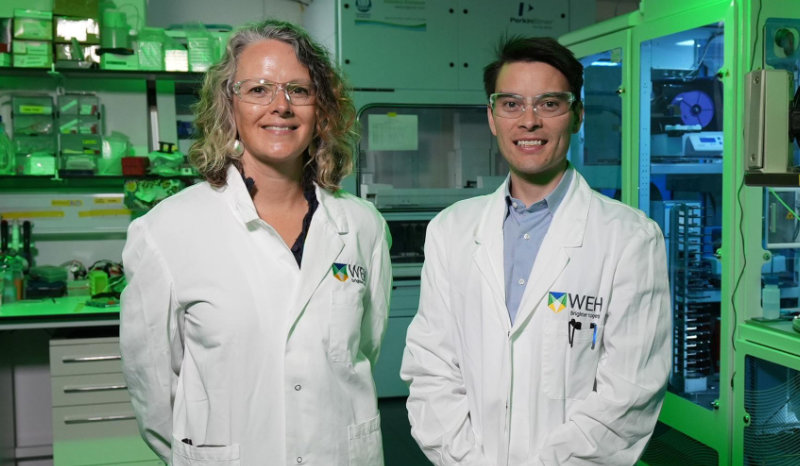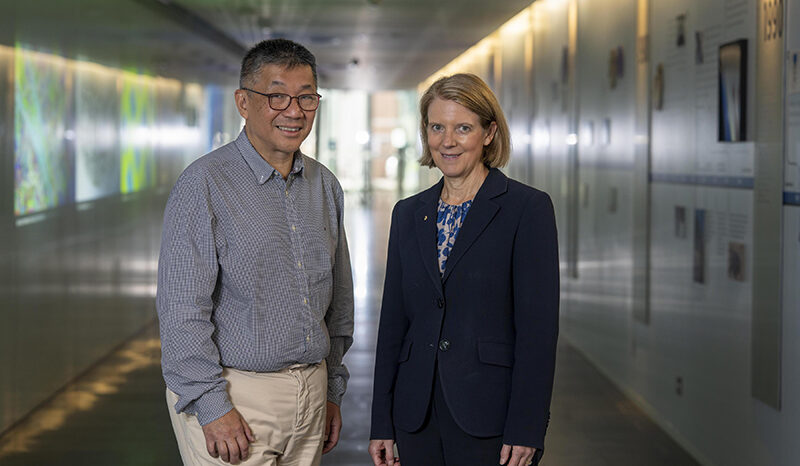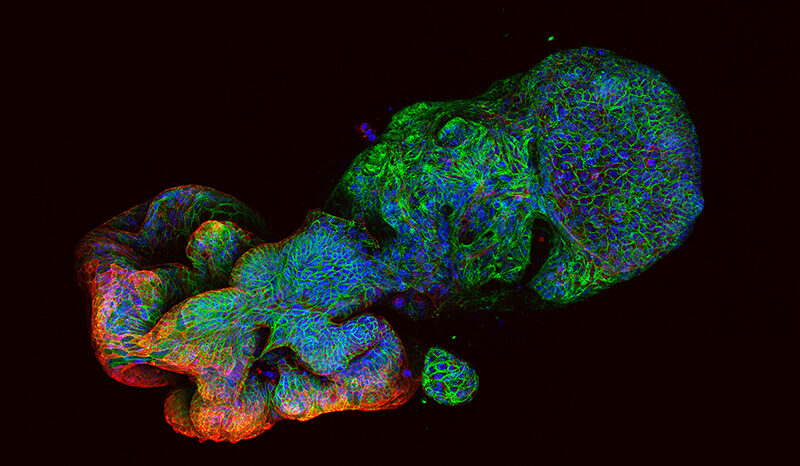What does your research look into?
Every minute, millions of cells in our bodies die on purpose. Cell death is an essential process that protects our bodies from disease by removing unwanted, damaged or dangerous cells and by preventing the spread of viruses, bacteria and even cancer.
There are many types of cell death but my research focuses on an explosive form called necroptosis that sounds the alarm for other cells in our bodies to respond.
In most scenarios, such in the case of a viral infection, necroptosis is beneficial. But when necroptosis is uncontrolled or excessive the inflammatory response can trigger diseases, like inflammatory bowel disease.
My research project focused on necroptosis at the molecular level, understanding how it is turned on and off, and how it can drive inflammatory disease.









